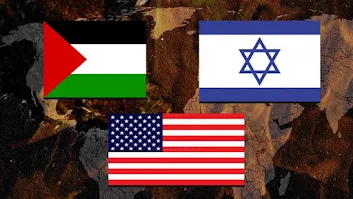"21st Century Dynamics: Understanding Israel-USA Relations Amidst Complexities"
The relationship between Israel and the United States is complex and multifaceted, characterized by deep and long-standing ties but also occasional disagreements.
US and Israel alliance
Here's a brief overview:
Historical foundation:
- Shared values: Both nations are democracies with strong ties to Judeo-Christian traditions. They value freedom, security, and economic prosperity.
- Early Cold War: The US supported Israel's establishment in 1948 and saw it as a democratic counterweight to Soviet influence in the region.
- Growing ties: Since then, military and economic cooperation has deepened significantly, making Israel the largest recipient of US foreign aid.
Strong Alliance:
- Diplomatic relations: The US was the first country to recognize Israel as a state in 1948, and the two countries have maintained close diplomatic relations ever since.
- Military cooperation: The US is Israel's largest military aid donor, providing billions of dollars in assistance annually. This allows Israel to maintain a strong military presence in the region and deter potential threats.
- Shared strategic interests: Both countries share concerns about terrorism, Iranian nuclear ambitions, and regional stability. They cooperate on intelligence sharing, counterterrorism efforts, and promoting democracy in the Middle East.
Points of friction:
- Israeli-Palestinian conflict: The US supports a two-state solution to the Israeli-Palestinian conflict, while Israel's current government favors expansion of settlements in the occupied territories. This difference in approach has sometimes led to tensions between the two countries.
- Iran nuclear deal: The US withdrawal from the Iran nuclear deal in 2018 and its subsequent efforts to impose sanctions on Iran have been met with criticism from Israel, which views Iran as a major threat to its security.
- Human rights concerns: Both countries have been criticized for human rights violations in the occupied territories. The US has urged Israel to show restraint in its use of force against Palestinians, while Israel has accused the US of being biased against it.
Current dynamics:
- Strategic alliance: The US views Israel as a key partner in promoting stability and countering threats like terrorism and Iranian influence.
- Israeli-Palestinian conflict: The US supports a two-state solution and urges restraint by both sides, while Israel's recent settlements and military actions in Gaza raise concerns.
- Domestic politics: US public opinion on Israel is shifting, with growing criticism of its policies towards Palestinians. This influences government policies and Congressional debates.
Impact of Gaza conflict:
- Humanitarian concerns: The US expresses concern about civilian casualties and calls for de-escalation, while also recognizing Israel's security concerns.
- Regional instability: The Gaza conflict risks wider regional escalation and undermines US efforts to promote peace and stability.
- Public pressure: Protests and media coverage in the US increase pressure on the government to reconsider its unconditional support for Israel.
Overall, the relationship between Israel and the United States remains strong, yet complex and subject to ongoing internal and external pressures. Deep historical and cultural ties, along with strategic cooperation, serve as anchors for the alliance. However, disagreements surrounding the Israeli-Palestinian conflict, differing approaches to Iran, and human rights concerns present ongoing challenges. As public opinion in both countries continues to evolve, the future dynamics of this relationship remain uncertain.



.jpeg)

.jpeg)



Comments
Post a Comment